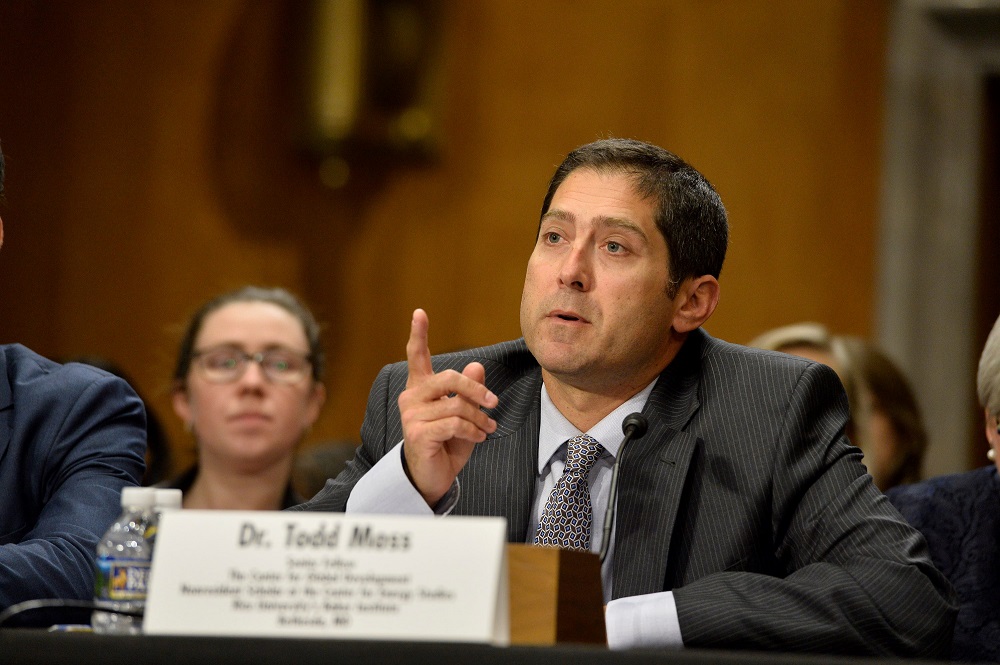Congress has officially departed Washington for the summer, leaving behind a lengthy to-do list for September. In the final weeks of session, both chambers clamored to advance spending bills for the 2017 fiscal year. Though draft bills funding the State Department and foreign assistance were among the last to emerge, both House and Senate Appropriations Committees managed to report out measures before the clock struck recess. So without further ado, here’s a quick rundown of what caught our attention as we sifted through pages of bill text and report language.
(All tables include dollars in millions.)
US Agency for International Development (USAID)
Both bills fall a bit short of meeting the President’s request for USAID’s operating expenses (OE). The OE account is decidedly unflashy but critical to ensure appropriate staffing to implement, manage, and monitor programs. Overall the agency fared relatively well. The Senate met the Administration’s increased ask for development assistance, while the House stuck to the FY16 enacted level.
More than the money, we were psyched to see language in the Senate Report encouraging USAID to pursue results-based assistance, including a shout out to “cash on delivery!” Here’s hoping this is just the encouragement the agency needs to pilot programs that link disbursements to verified outcomes.
The Senate bill also extended a provision requiring future bilateral country assistance strategies to include a transition plan. As countries achieve development milestones and gain access to other financial flows, planning for countries’ transition away from traditional aid, and thinking about alternative tools of engagement, makes sense. This kind of direction from Congress could provide a helpful nudge for the agency without being overly prescriptive.
Millennium Challenge Corporation (MCC)
Still well shy of the $1 billion mark, MCC would receive a very modest boost under the draft Senate bill and level funding in the House version.
Notably, thanks to an amendment championed by Senator Chris Coons (D-DE), the Senate bill includes concurrent compact authority, which would allow the agency to explore regional approaches. (See Sarah Rose’s commentary for more on MCC-related provisions in the Senate bill and check out her paper on how regional compacts might work in practice.)
While the House version lacks new authority for the agency, we were pleased to see language carried over from last year that directs MCC to report estimated economic rates of return for projects in new country compacts as well as explanations of major programmatic changes that occur in existing compacts. Both requirements push an already transparent agency to go further and will arm Congress with even more information about how US assistance will be used.
Multilateral Assistance
This time last year, we were seriously concerned. When faced with making trade-offs to stay under established caps, appropriators in both chambers proposed drastic cuts in US contributions to a number of multilateral institutions. The House FY16 bill provided less than half of the funding requested to meet our commitments to international financial institutions. The Senate’s version quite literally halved funding across the board. So while the funding levels included in the FY17 draft bills are below the levels in the President’s far-from-ambitious budget, the overall picture is less dire.
Still, at a time when stories of economic uncertainty and upheaval around the globe seem almost commonplace, continued US commitment and leadership in these institutions is particularly critical. We’ll keep fingers crossed that this line gets a boost in any final bill.
Global Health
Global health programs have long-benefitted from strong, bipartisan congressional support. This year is no exception. House and Senate Appropriators would provide more funding than what was requested.
The House bill includes nearly $130 million more for global health security than was included in the President’s budget. Greater resources devoted to bolstering country health preparedness would be welcome. But as we enter the dog days of summer, Congress’ failure to reach agreement on funding to combat Zika is certain to keep the spotlight over small signs of bipartisan support for safeguarding global health.
Overseas Private Investment Corporation (OPIC)
The Senate bill would provide a modest increase in funding for OPIC’s administrative budget, which would allow the agency to hire additional staff to better leverage its existing capital, and would authorize the development finance agency through FY17. The House bill appropriates level funding and leaves out the authorizing language. Both bills continue the tradition of nullifying the agency’s cap on carbon emissions.
Domestic Resource Mobilization (DRM)
The reports accompanying House and Senate bills contain language supporting US efforts to promote domestic revenue mobilization (DRM) in partner countries. These efforts are critical to realizing the promise of the Addis Tax Initiative. While USAID and the Treasury Department’s Office of Technical Assistance (OTA) have made important progress, there’s potential for more.
The Administration requested a $10 million boost in funding for OTA, which embeds advisors in country governments to provide counsel on DRM, financial management, and even public service delivery. The House and Senate bills provide a portion of the increased ask, offering $28.5 million and $30.1 million, respectively.
Other items of interest:
Green Climate Fund (GCF)
Thanks to an amendment sponsored by Senator Jeff Merkley (D-OR), which drew support from two Republican Committee members, Senate Appropriators struck the prohibition on funding for the GCF from the chamber’s draft bill and added $500 million for the Fund, two-thirds of the president’s request. A similar effort during the House markup was unsuccessful, so that bill retains an explicit prohibition on US contributions. Expect the difference to be a flashpoint in future negotiations.
Power Africa
Senate Appropriators recommended $291 million for the Power Africa Initiative, the full amount requested in the President’s budget. The House report remains silent.
Disclaimer
CGD blog posts reflect the views of the authors, drawing on prior research and experience in their areas of expertise. CGD is a nonpartisan, independent organization and does not take institutional positions.




